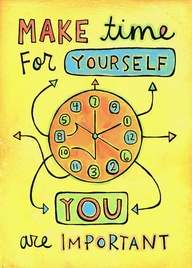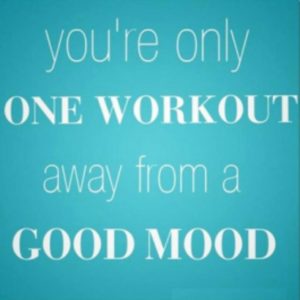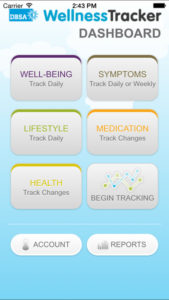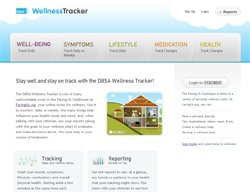Author Archive for Austin Bailey – Page 4
 Self-care is important to both physical and mental health, so why don’t we do it more? Sometimes we feel focusing on ourselves is selfish or inconsiderate, but being the best you through self care makes you better for others. Without self-care, your relationships with others can suffer tremendously. Taking time to take care of yourself will help prevent burnout, reduce stress, and help you to refocus. Showing yourself some self love doesn’t have to be grandiose either. Here are 101 suggestions from Annie Wright as posted on The Mighty.
Self-care is important to both physical and mental health, so why don’t we do it more? Sometimes we feel focusing on ourselves is selfish or inconsiderate, but being the best you through self care makes you better for others. Without self-care, your relationships with others can suffer tremendously. Taking time to take care of yourself will help prevent burnout, reduce stress, and help you to refocus. Showing yourself some self love doesn’t have to be grandiose either. Here are 101 suggestions from Annie Wright as posted on The Mighty.
Not up to reading? No judgements here, I totally get it. How about this playlist of nine TED talks about the importance of self-care.
 An article By Jess Melancholia from bp Magazine
An article By Jess Melancholia from bp Magazine
Printed as “What I wish family and friends knew about bipolar”, Winter 2017
Here are three basic premises that I wish they knew:
You can’t understand my bipolar and you never will.
When I’m manic or depressed, that’s not the real me.
Your coping skills won’t “fix” me.
In this age of technology there are new ways of managing mood disorders right at your finger tips. I searched Google Play on my Android phone today for “mental health app” to receive a multitude of results. There was everything from breathing exercises, to trackers, to chat therapy. Since I lack the time to research all options available, I turned to the Internet for recommendations. PsychiatryAdvisor.com has composed a nice well-rounded list of 10 apps to try (especially if you are like me and overwhelmed at where to start).
Amazon has a large variety of gifts that are perfect for Valentine’s Day including electronics, jewelry, clothing, and more.
Need more information on what Amazon Smile is? Click here to read our blog post about it!
In “A World Without”, DBSA celebrates the amazing accomplishments of some of history’s most notable figures who live(d) with mental health challenges. Visit DBSAlliance.org/LifeUnlimited to read inspirational stories of people who live their life unlimited by their experience with a mood disorder.

The passing of Carrie Fisher has brought to the forefront her living with bipolar and her mental health advocacy. One of her quotes that I can relate to was a statement regarding depression. She said:
When you get [in that mental state], it’s hard to talk. You are reaching out from such a far away place. What do you say? You don’t want to be a burden and you don’t want to seem like you feel sorry for yourself – it’s humiliating among so many other things.
This encouraging quote and others can be found in the article 13 Things Carrie Fisher Said About Living With Mental Illness.
To many people, Carrie Fisher was known only as Princess Leia. To Hannah Jane Parkinson, she was a role model and personal hero. Parkinson first saw Fisher in the documentary The Secret Life of the Manic Depressive which you can watch on YouTube. To Jennifer Marshall, Fisher’s openness inspired her to “come out” with her mental illness.
For me personally, learning about Carrie Fisher’s life with mental illness is a comfort and reminder that, though we’ll have good and bad days, we can live well with mental illness.
December has been a very busy and stressful month so far, but I couldn’t be happier that I fought that isolation urge on this cold night to join the DBSA OP group. While it seems no one knows me better than my couch while I’m depressed, I truly am understood here. Tonight is also a special night being the 3rd Annual Holiday party, complete with musical talents of some of our members. Sometimes support is as simple as being amidst others, singing, smiling, and laughing.

Whether it’s SAD (seasonal affective disorder) or just a regular old mood disorder depression, one way to combat the sadness is with exercise. Many of us do not like to workout, especially when we are depressed, but studies do show it is an effective tool in battling the blues. Here are 3 mood boosting low impact workouts to try right at home:
1. Yoga
There are many techniques to yoga that don’t involve complicated poses or even a mat. The first step involves controlled breathing. Lynn Louise Wonders, a yoga teacher and the owner of the Yoga Room, in Marietta, Georgia advises, “Breathe in through your nose to the count of five. Hold for two counts, then exhale through your nose to the count of five, emptying your lungs completely.” She also recommends “Look for a beginner’s class with a qualified instructor (find a studio through the Yoga Alliance Registry; yogaalliance.org).” For home practice, try Yoga for the Rest of Us with Peggy Cappy. Amy Weintraub, founder of LifeForce Yoga and author of Yoga for Depression, describes in her new book Yoga Skills for Therapists “powerful techniques, which are not always included in yoga classes, including breathing exercises (pranayama), easy meditations, and hand gestures called mudras that empower one to self-regulate one’s mood and develop increasing feelings of self-efficacy and control.”
2. Cycling
Stationary cycling can get your heart rate up while limiting impact on joints. Energy levels have been shown to increase after a single 30-minute cycling session. “The cycling seemed to activate brain neural circuits that make a person feel energized,” says Patrick O’Connor, a professor of kinesiology at UGA. “We tend to think of physical activity as being tiring, but in fact physical activity adds energy to our lives,” says Kate F. Hays, Ph.D., a clinical and sport psychologist in Toronto. Another study has shown cortisol, stress hormone, levels will drop after just 15 minutes of stationary pedaling. For more information see Bicycling Can Sharpen Your Thinking and Improve Your Mood; Riding a bike is good for your cognitive health and emotional well-being. Posted May 26, 2015 on Psychology Today. For a summary of information see What are the health benefits of cycling? Posted by Bikemunk.
3. Weights
No, I’m not talking about becoming a gym rat with bulging biceps. I’m talking low intensity weight training. It’s something that can be done while sitting on the couch watching TV. Light strength training can get blood flow through your muscles and help you feel stronger. Not having dumbbells isn’t an excuse for not trying these exercises. Cosmo magazine has compiled a list of household items that can be used in 17 Household Items That Work Just as Well as Weights. Try starting with just two sets of twenty repetitions. If it’s too easy, either increase the weight or try a body-sculpting class at a local gym or a DVD (like Step-by-Step Strength Training, With Petra Kolber). Skip a day between workouts so your muscles have some time to rest.
Exercise classes can also be a good choice for people battling depression. Classes can give a feeling of belonging as well as help to build relationships. As always, before starting physical activities you are not used to doing, talk to your doctor. More than likely they will be happy with your wanting to exercise, but you may have to start more slowly if you haven’t done it in a while.
Did you know that DBSA has its own Wellness Tracker App?
Let’s face it, as a society we have become dependent on our phones. Since we never go anywhere without them, what better way to keep track of your emotional, mental, and physical health. Other trends you can track are lifestyle (sleep, exercise, etc.) and medications (including those pesky side effects). There are monthly reports with summaries of how you Actually felt (as opposed to how you think you felt based on your mood while you are talking to your doctor). A good log will also help you identify consistent triggers you face in your life. This is all super valuable information for your clinician to help create a wellness plan completely customized to you!
Download your free DBSA Wellness Tracker App (Named the 2015 Top Bipolar App) for either Apple or Android here:
If you do not have an account, you can create a new one from the app’s initial screen or by going to https://www.facingus.org/account/signup.
Prefer to track using your computer? No problem.
- Register on FacingUs.org to access DBSA Wellness Tracker
- Login to DBSA Wellness Tracker on FacingUs.org
Why is registration on FacingUs.org required?
FacingUs.org is the tool DBSA uses to store your daily logs. A digital filing cabinet of sorts. Your information is yours and will not be shared. Once registered, you will also be able to use all of the other features and tools on FacingUs.org.
Apple, the Apple logo iPhone and iPod touch are trademarks of Apple Inc., registered in the U.S. and other countries. App Store is a service mark of Apple Inc.
Copyright © 2024 All Rights Reserved




